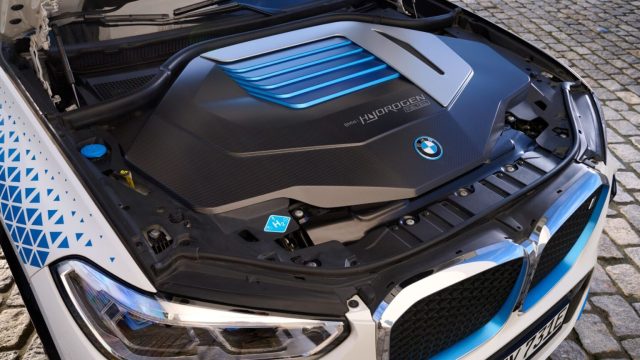[ad_1]
GERMANY – Hydrogen is trendy and the automotive world is about to be turned upside down. The company responsible for stirring it up is none other than BMW and its confirmation that they will create an electric vehicle with a fuel cell by 2028.
The materialization of this project strengthens BMW’s current alliance with Toyota, which is practically one of the only manufacturers that continue to compete for hydrogen, since they still believe that the future lies in this element.
This will be BMW’s first hydrogen-powered vehicle, and it will be accessible to buyers even though the Japanese company has already been selling the Mirai model for more than ten years, a zero-emissions model that costs more than $60,000. Nevertheless, it has been confirmed by the brand itself that the new project will be a reissue of an existing product.
The X5 was the last model on which a hydrogen car from this company was based, but by that time, the generation of luxury vehicles known today will have reached the end of its useful life. There is a very high probability that a next-generation vehicle will have replaced it by then, which leads us to believe that a hydrogen SUV will not be a version of this vehicle.
Although there are no clues as to what model BMW will use for its vehicle, the company is committed to redesigning a Toyota that remains true to the brand but original. It is not surprising that despite the news, Toyota will continue to work on its own projects, as the team’s efforts are focused on developing vehicles that will use this hydrogen fuel cell technology. At the same time, it is important to note that the fuel cells in the iX5 Hydrogen come from their partner Toyota.
This new car model will be based on the CLAR platform, an automotive platform developed by BMW that incorporates steel, aluminum and carbon fiber, which we already know from previous versions.
There are less than 100 units that are part of this exclusive test fleet that makes up thezero emission SUV. The SUV in question is built at a plant in Spartanburg and shipped to a modification center in Munich, Germany, where the 396-horsepower iX5 is fitted with 700-bar hydrogen tanks. These tanks are made of carbon fiber-reinforced plastic (CFRP), and both have a capacity of six kilograms of hydrogen. The vehicle’s autonomy (WLTP) is 313 miles, and refueling is estimated to take between three and four minutes.
Next year, BMW will launch the Neue Klasse, its first platform dedicated exclusively to electric vehicles. This architecture was designed with the integration of hydrogen fuel cell technology in mind. According to some reports, however, the company is planning to use the CLAR architecture for the first steps in the development of hydrogen models.
The reality is that BMW has been active in the development of hydrogen vehicles since 1979, with the 520h model featuring a modified internal combustion engine that ran on hydrogen. It later repeated the pattern with the E38 and E65 models during the 2000s. although it is not very clear that the internal combustion engine is efficient.
The vice president of BMW, explained in a recent interview that the X5 Hydrogen FCEV can travel 500 km on a single tank, outperforming its combustion version, which only reaches 300 km. This range, combined with a fast refueling time of 3 to 4 minutes, could boost interest in hydrogen vehicles.
However, the biggest obstacle remains the limited recharging infrastructure in many regions. Nevertheless, BMW and Toyota are working on local projects to improve this network before 2028, which would facilitate the commercialization of the vehicle.
[ad_2]
Source link











